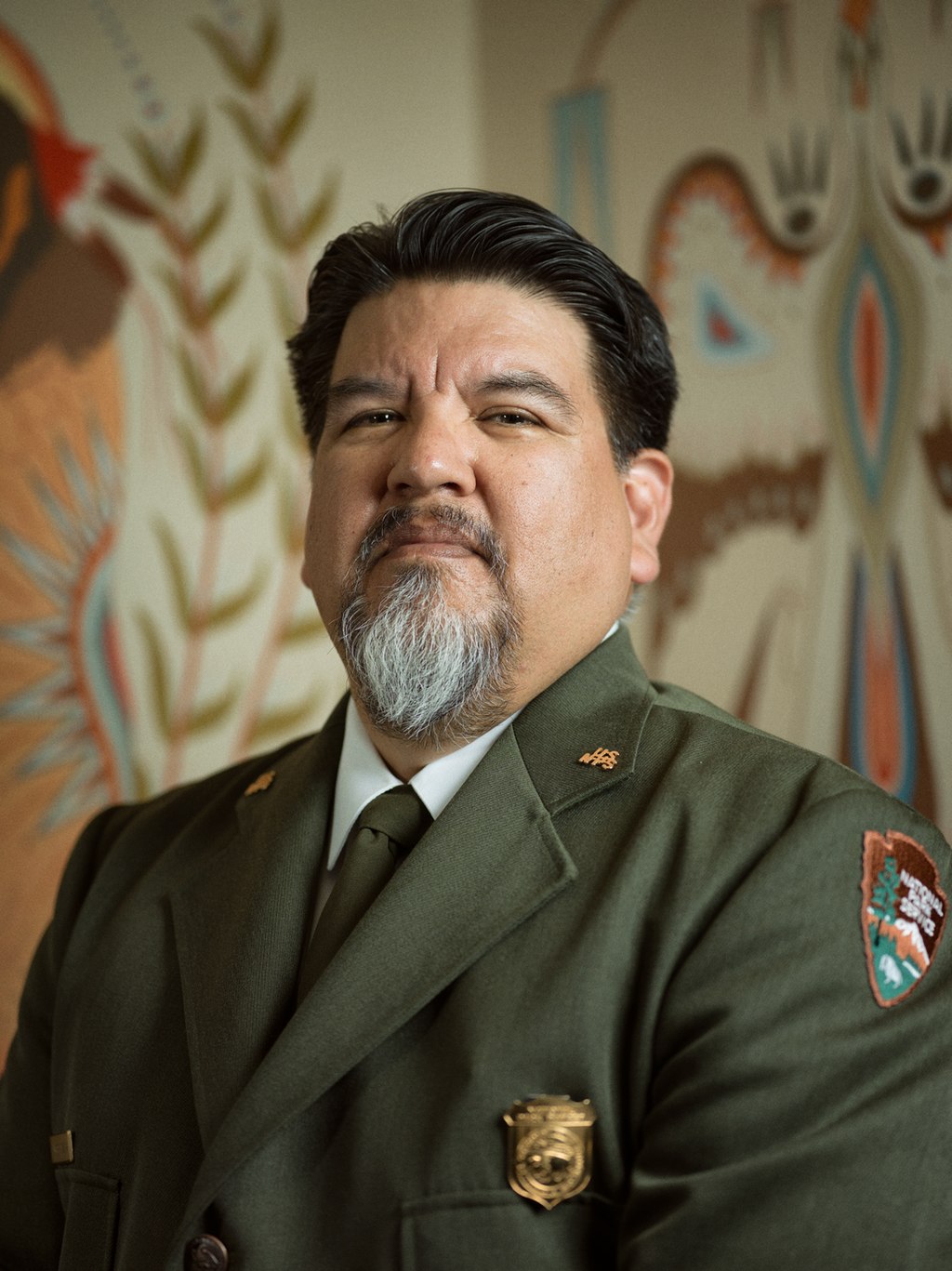
- Details
- By Native News Online Staff
Charles F. “Chuck” Sams III, the former director of the National Park Service, has been named by the University of Oregon School of Law as the first Oregon Tribes Scholar-in-Residence and Senior Fellow with the Native Environmental Sovereignty Project. The position is part of Oregon Law’s top-ranked Environmental and Natural Resources Law (ENR) Center.
A native of Pendleton, Oregon, Sams is Cayuse and Walla Walla and is an enrolled tribal citizen of the Confederated Tribes of the Umatilla Indian Reservation. He brings more than 30 years of leadership in natural resource management, conservation, and sustainable stewardship. Currently, he serves on the Pacific Northwest Power and Conservation Council as Governor Tina Kotek’s appointee and Co-Chairs the Oregon Environmental Restoration Fund.
Sams made history under the Biden Administration as the first Indigenous Director of the National Park Service. In that role, he advanced agency-wide priorities focused on climate resilience, Tribal sovereignty, and the future of public lands nationwide.
“We are tremendously honored to have Chuck Sams join our community and advance our school’s commitment to the Oregon Tribes,” said Dean Jennifer Reynolds, who collaborated with the ENR Center and campus partners to bring Sams to Oregon Law.
In his new role, Sams will contribute across multiple areas: sharing expertise in and out of the classroom, mentoring students, guiding research on Tribal co-management of lands and resources, and building stronger partnerships with Tribal Nations and Indigenous communities throughout the Pacific Northwest.
“I am thrilled to have such a visionary thinker with national stature contributing to our innovative research,” said Mary C. Wood, Philip H. Knight Professor of Law and Faculty Director of the ENR Center.
One of Sams’ first engagements at Oregon Law will be co-presenting in the widely attended Oregon Law Perspectives webinar series. Alongside Professor of Practice Howard Arnett, he will lead a session titled “Treaties, Trust, and Tomorrow: Navigating the Legal Landscape of Native Lands” on August 8, 2025.
One of Sams' first endeavors is participating in the popular Oregon Law Perspectives webinar series, where, with Professor of Practice Howard Arnett, he will co-present "Treaties, Trust, and Tomorrow: Navigating the Legal Landscape of Native Lands" on August 8, 2025. Learn more about Oregon Law Perspectives.
More Stories Like This
Gwich'in Tribal Governments Submit Comments Challenging Fish and Wildlife Service's Inadequate Environmental Review of Arctic Refuge Snow RoadRappahannock Tribe Challenges 9M-Gallon Water Plan
Feds release draft long-term plans for Colorado River management
Apache Leader Walks 60 Miles to Court Hearing That Will Decide Fate of Sacred Oak Flat
Rappahannock Tribe Raises Sovereignty and Environmental Concerns Over Caroline County Water Permit
Help us defend tribal sovereignty.
At Native News Online, our mission is rooted in telling the stories that strengthen sovereignty and uplift Indigenous voices — not just at year’s end, but every single day.
Because of your generosity last year, we were able to keep our reporters on the ground in tribal communities, at national gatherings and in the halls of Congress — covering the issues that matter most to Indian Country: sovereignty, culture, education, health and economic opportunity.
That support sustained us through a tough year in 2025. Now, as we look to the year ahead, we need your help right now to ensure warrior journalism remains strong — reporting that defends tribal sovereignty, amplifies Native truth, and holds power accountable.
 The stakes couldn't be higher. Your support keeps Native voices heard, Native stories told and Native sovereignty defended.
The stakes couldn't be higher. Your support keeps Native voices heard, Native stories told and Native sovereignty defended.
Stand with Warrior Journalism today.
Levi Rickert (Potawatomi), Editor & Publisher

